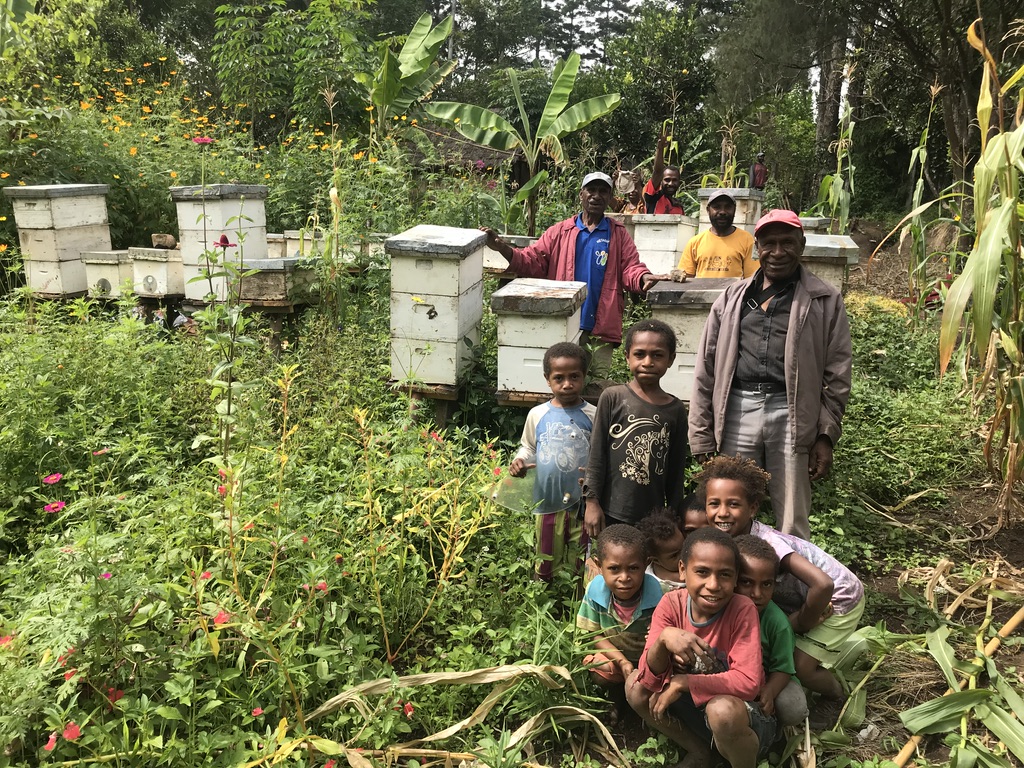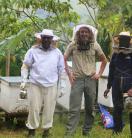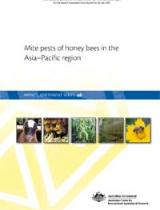Beekeepers abuzz in sweet new Pacific project

Beekeepers in the Pacific are set to benefit from a new ACIAR-funded project aiming to improve the productivity and profitability of smallholder beekeeping.
The four-year project run by Southern Cross University’s Bees for Sustainable Livelihoods research group will work with local beekeepers in Fiji and Papua New Guinea (PNG) to enhance beekeeping technical skills, reduce honey bee biosecurity risks and improve opportunities for women’s groups to generate income from beekeeping enterprises.
With a high domestic demand for honey and beeswax, both Fiji and PNG have recently strengthened policies and programs to increase the uptake of beekeeping, seen as a sustainable way for subsistent farmers to increase household incomes and further reduce poverty.
ACIAR’s Livestock Research Program Manager, Dr Anna Okello, believes beekeeping has great potential to improve rural livelihoods.
‘Bees are a good way for smallholder farmers to diversify their income. The honey industry in PNG was once exported to the European market, so if there’s anything we can do to revitalise the industry, it will have real economic value for rural communities,’ said Dr Okello
‘Helping smallholder beekeepers increase productivity through improved biosecurity is something Australia is well-positioned to do. As the only country in the region free from the parasitic varroa mite, we have the knowledge and skills to assist our regional neighbours to improve their biosecurity capacity.’
Southern Cross University’s beekeeping specialist, Cooper Schouten, says the new project will not only address the biosecurity and technical skills issues but also look to understand how specific management practices influence beekeeping production and income.
‘Beekeeping has a lot of other benefits in addition to honey production which are often overlooked. Yet, bees, just like any other form of livestock, cannot be expected to be productive if they are simply left in the paddock,’ says Schouten. ‘Attention needs to be placed on honey bee nutrition, genetics, and pest and disease. Appropriate education and ongoing mentorship and extension services are also vital for beekeeping programs to succeed’.
‘We are increasingly seeing beekeeping projects implemented that start with the best intentions, but often fail to achieve the desired outcomes, hives become neglected and drop-out rates are high’. Our research will help to improve access to best practice information and resources, not only for beekeepers but also for managers of beekeeping programs throughout the Indo-Pacific region.
As well as developing mentorship programs and floral (bee food) calendars, the project will also develop best practice guidelines for monitoring and controlling biosecurity threats such as American foulbrood (AFB), Varroa mite and Tropilaeleps mite, which has flow-on benefits for informing best practice for the Australian honey bee industry and in other Pacific countries.
The project will also focus on gender equity, incorporating the Family Farms Teams approach to empower rural women through beekeeping.
‘The fact that hives can be placed close to the house and as part of existing gardens, land ownership is not required, there are minimal demands on time and can work in with family responsibilities, are all positive attributes that may encourage women to take up the activity,’ says Schouten.
‘Beekeeping is a typically male-dominated business and it doesn’t need to be. There are plenty of opportunities for women right along the value chain to participate, from the beekeeping itself to the production and marketing of bee-related products like queen bees, bee veils, gloves, beehives, candles, and other wax products.’
The research project will work with local partner organisations in Fiji to develop a Certificate 3 qualification equivalent for beekeepers while collaboratively developing policy recommendations for the establishment of a beekeeping industry body in PNG.
The project, Increasing the productivity and profitability of smallholder beekeeping enterprises in PNG and Fiji, will be led by Associate Professor David Lloyd from Southern Cross University and will partner with in-country organisations including the Fiji Ministry of Agriculture, Biosecurity Authority of Fiji, Fiji Beekeepers Association, PNG Coffee Industry Corporation, and the PNG Department of Agriculture and Livestock.
ACIAR has been investing in bee biosecurity research since the 1990s, funding the entomology department at the CSIRO on four projects across the Philippines, Indonesia and Papua New Guinea, with knowledge gained helping establish Australia’s National Bee Pest Surveillance Program.




